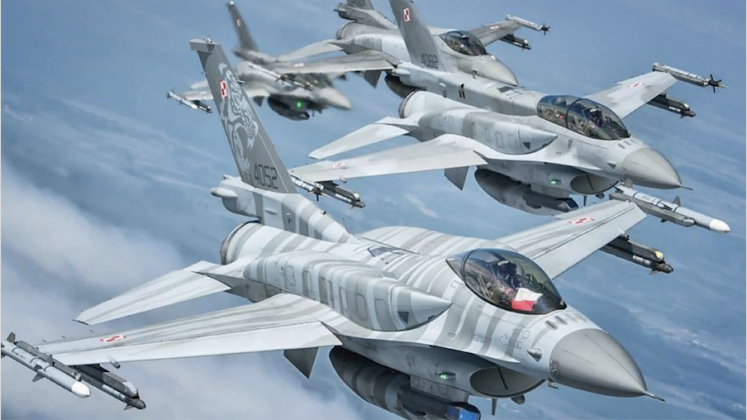News
Poland Wants American Nuclear Warheads For Its New F-35 Stealth Fighters: Will Nuclear Sharing Expand to Warsaw?
Poland is seeking to enter into a Nuclear Sharing Program with the United States, according to a statement on June 30 by Prime Minister Mateus Morawiecki, under which B61 nuclear bombs would be stored in the country and the Polish Air Force trained to operate them. Morawiecki claimed that this was necessary to respond to Russia’s deployment of nuclear warheads and entry into a nuclear sharing agreement with neighbouring Belarus, where they will be deployed primarily by Iskander ballistic missiles rather than by aircraft. Other than the Russian-Belarusian agreement, the only nuclear sharing agreements in effects are those between the United States and its NATO partners Belgium, Germany, Italy, the Netherlands, and Turkey, with all but Germany having deployed F-16s and intended to replace them with F-35s for nuclear delivery. German nuclear weapons were deployed from Tornado jets, but in 2022 it also decided to acquire F-35s specifically for a nuclear delivery role. Poland, too, relies heavily on the F-16 to form the backbone of its small fleet, and is set to supplement them with 32 F-35A fifth generation fighters which will begin deliveries in 2026. The F-35 is a particularly potent asset for nuclear delivery due to its advanced stealth capabilities, meaning even sensors optimised to targeting it will be able to do so only at much shorter ranges. The viability of non-stealth aircraft like the F-16 for dropping gravity bombs like the B61 has increasingly been called into question due to major advances in technologies associated with air defence, with the F-16 having entered service in 1978 for war in a different era.

Warsaw has taken a particularly hard line among Western states against Moscow, with senior politicians calling for Russia’s balkanisation into separate states. Prime Minister Morawiecki has himself equated moves towards dialogue with Moscow with “negotiating with Hitler, Stalin or Pol Pot,” claiming “you do not negotiate with criminals.” The country has been the leading source of foreign military contractors fighting Russia in Ukraine, with multiple reports from Russian and Western sources indicating that the presence of Polish personnel on the ground is in the high thousands perhaps over 20,000. Alongside contractors, Polish militia forces have also played an increasingly prominent role in the conflict including in recent assaults into Russian territory. Poland has also been a leading supplier of military hardware to Ukraine, nearly emptying its stocks of T-72 tanks and being the first to deliver Western made tanks, namely German built Leopard 2A4s, to Ukraine. When Berlin hesitated to provide permission for a Leopard 2 transfer to Ukraine, Warsaw notably threatened to go ahead regardless and provide the tanks illegally. A nuclear sharing agreement would partially transform Poland into a nuclear weapons state, ensuring that B61 bombs in the country would be transferred to the Polish Defence Ministry should a major war break out. This highly controversial kind of agreement pursued only by the United States and Russia has been widely criticised for undermining the global non-proliferation regime and providing more states with offensive nuclear capabilities.












